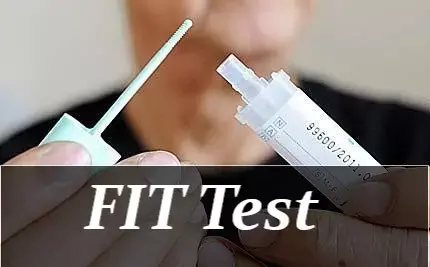- Home
- Medical news & Guidelines
- Anesthesiology
- Cardiology and CTVS
- Critical Care
- Dentistry
- Dermatology
- Diabetes and Endocrinology
- ENT
- Gastroenterology
- Medicine
- Nephrology
- Neurology
- Obstretics-Gynaecology
- Oncology
- Ophthalmology
- Orthopaedics
- Pediatrics-Neonatology
- Psychiatry
- Pulmonology
- Radiology
- Surgery
- Urology
- Laboratory Medicine
- Diet
- Nursing
- Paramedical
- Physiotherapy
- Health news
- Fact Check
- Bone Health Fact Check
- Brain Health Fact Check
- Cancer Related Fact Check
- Child Care Fact Check
- Dental and oral health fact check
- Diabetes and metabolic health fact check
- Diet and Nutrition Fact Check
- Eye and ENT Care Fact Check
- Fitness fact check
- Gut health fact check
- Heart health fact check
- Kidney health fact check
- Medical education fact check
- Men's health fact check
- Respiratory fact check
- Skin and hair care fact check
- Vaccine and Immunization fact check
- Women's health fact check
- AYUSH
- State News
- Andaman and Nicobar Islands
- Andhra Pradesh
- Arunachal Pradesh
- Assam
- Bihar
- Chandigarh
- Chattisgarh
- Dadra and Nagar Haveli
- Daman and Diu
- Delhi
- Goa
- Gujarat
- Haryana
- Himachal Pradesh
- Jammu & Kashmir
- Jharkhand
- Karnataka
- Kerala
- Ladakh
- Lakshadweep
- Madhya Pradesh
- Maharashtra
- Manipur
- Meghalaya
- Mizoram
- Nagaland
- Odisha
- Puducherry
- Punjab
- Rajasthan
- Sikkim
- Tamil Nadu
- Telangana
- Tripura
- Uttar Pradesh
- Uttrakhand
- West Bengal
- Medical Education
- Industry
Occult blood in stools tied to increased risk of MI and stroke: JAHA

Colorectal cancer (CRC) is the third most commonly diagnosed cancer worldwide. A stool test for occult blood is a commonly used method in average‐risk subjects with CRC, as it is easily repeatable with a single sample and is less invasive, user friendly, and cost‐effective. A research team of South Korea have recently reported that positive fecal immunochemical test (FIT) findings were associated with ischemic stroke, MI, and mortality. The study findings were published in the Journal of American Heart Association on December 29, 2020.
Fecal immunochemical tests (FITs) have improved sensitivity compared with guaiac‐based fecal occult blood tests for detecting Colorectal cancer. Cardiovascular diseases and CRCs share several risk factors, including old age, smoking, and physical inactivity suggesting that particular underlying pathogenesis of CRC could also be applied to cardiovascular diseases. Many of these listed factors are reported to be associated with chronic systemic inflammatory reactions. However, no previous study has investigated the impact of FIT results on the development of cardiovascular diseases. For this purpose, researchers conducted a study to evaluated the clinical utility of FIT in patients with cardiovascular diseases (namely, ischemic stroke and myocardial infarction [MI]).
It was a retrospective cohort study using the National Health Insurance database. Researchers included 62,77,446 participants (aged >50 years) with CRC screening and follow up records from 2009 to 2012. They used the International Classification of Diseases, Tenth Revision (ICD‐10) codes to define Ischemic stroke, MI, and other comorbidities. The major outcome assessed was newly diagnosed ischemic stroke or MI. They also assessed all‐cause mortality during the follow‐up period. Physical and laboratory measurements were adjusted in a multivariate analysis.
During the mean 6.79 years of follow‐up, they observed 1,68,570 participants developed ischemic stroke, 1,05,983 developed MI, and 11 253 dead. Upon the multivariate‐adjusted model, they found an association of positive FIT findings with ischemic stroke(adjusted HR, 1.09), MI (aHR, 1.09), and mortality (aHR, 1.15). They noted that the increased risk remained consistent in the stratified analysis on anemia and CRC status.
The authors concluded, "Positive FIT findings were associated with ischemic stroke, MI, and mortality. Occult blood in feces may offer more clinical information than its well‐known conventional role in CRC screening".
For further information:
https://www.ahajournals.org/doi/10.1161/JAHA.120.017783
Medical Dialogues Bureau consists of a team of passionate medical/scientific writers, led by doctors and healthcare researchers. Our team efforts to bring you updated and timely news about the important happenings of the medical and healthcare sector. Our editorial team can be reached at editorial@medicaldialogues.in.
Dr Kamal Kant Kohli-MBBS, DTCD- a chest specialist with more than 30 years of practice and a flair for writing clinical articles, Dr Kamal Kant Kohli joined Medical Dialogues as a Chief Editor of Medical News. Besides writing articles, as an editor, he proofreads and verifies all the medical content published on Medical Dialogues including those coming from journals, studies,medical conferences,guidelines etc. Email: drkohli@medicaldialogues.in. Contact no. 011-43720751


